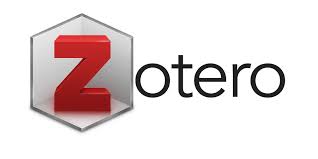Analisis Penilaian Afektif Pembelajaran Daring Menggunakan Learning Management System (LMS) pada Mata Pelajaran Matematika
DOI:
https://doi.org/10.29240/ja.v3i2.3420Keywords:
Online Learning, Affective Assessmen, Learning Management System (LMS)Abstract
The purpose of this study was to describe affective assessment in mathematics subjects using LMS media as a media to support learning activities between students and teachers in online learning. The subjects of this study were 214 students who were divided into five classes in class XI IPA SMA Negeri 1 Purbalingga. This research was conducted in July – September 2021. The data in this study were obtained from the results of filling out questionnaires related to affective assessment in online learning. The scale used to measure the affective aspect of the activities of an object is the Likert scale. The data analysis technique used descriptive statistical methods. The results showed that the implementation of the affective domain assessment in online learning through the Learning Management System (LMS) in the mathematics subjects of class XI science students at SMA Negeri 1 Purbalingga was running well. Teachers and students can already use the application as expected so that students can follow the learning well. With the LMS, it is easier for students to understand the material, get assignments and assessments and can interact and discuss with the teacher smoothly. In addition, students also remain highly motivated even though learning cannot be done face-to-face.
Downloads
References
Clark, R. C. & Mayer, R. E. 2003. E-Learning and the Science of Instruction. Ossey-Basis/Pfeiffer.
Djaali & Pudji Muljono. 2008. Pengukuran dalam Bidang Pendidikan. Jakarta: Grasindo.
Ghozali, Imam. 2011. Aplikasi Analisis Multivariate Dengan Program SPSS. Semarang: Badan Penerbit Universitas Diponegoro.
Gusti, Ade Rahma dkk. 2020. Penilaian Afektif Pembelajaran Daring IPA Terpadu Dengan Menggunakan Media Whatsapp. DIFFRACTION: Journal for Physics Education and Applied Physics, Vol. 2 (2), 65 – 73.
Henderson. 2003. The E-Learning Question and Answer Book. American Management Association.
Krathwohl dkk. 2014. Taxonomy of Educational Objektives, Affective Domain. London: Longman Group.
Lee, J. 2020. Mental Health Effects of School Closures During Covid-19. Child & Adolescent Health.
Pusdiklat Kemdikbud. 2020. Surat Edaran Mendikbud No 4 Tahun 2020 Tentang Pelaksanaan Kebijakan Pendidikan Dalam Masa Darurat Penyebaran Corona Virus Disease (COVID-19). Pusdiklat Pegawai Kementeria Pendidikan dan Kebudayaan.
Sudiana, Ria. 2016. Efektifitas Penggunaan Learning Management System Berbasis Online. Jurnal Penelitian dan Pengembangan Matematika (JPPM), Vol.9 (2), 201 – 209.
Sudjana, Nana. 2004. Dasar-dasar Proses Belajar Mengajar. Bandung: Sinar Baru Algensido Offset.
Wibowo, A. T., Akhlis, Isa., & Nugroho, S. E. 2014. Pengembangan LMS Berbasis Web untuk Mengukur Pemahaman Konsep dan Karakter Siswa. Scientifik Journal Of Informatics, Vol. 1 (2), 127 – 137.
Yusuf, Syamsu. 2014. Psikologi Belajar Agama. Bandung: Pustaka Bani Quraish.
Downloads
Published
Issue
Section
Citation Check
License
Authors who publish with ARITHMETIC: Academic Journal of Math agree to the following terms:
- Authors retain copyright and grant the journal right of first publication with the work simultaneously licensed under a Creative Commons Attribution-NonCommercial-ShareAlike 4.0 International License (CC BY-NC-SA 4.0) that allows others to share the work with an acknowledgment of the work's authorship and initial publication in this journal.
- Authors are able to enter into separate, additional contractual arrangements for the non-exclusive distribution of the journal's published version of the work (e.g., post it to an institutional repository or publish it in a book), with an acknowledgment of its initial publication in this journal.
- Authors are permitted and encouraged to post their work online (e.g., in institutional repositories or on their website) prior to and during the submission process, as it can lead to productive exchanges, as well as earlier and greater citation of published work (See The Effect of Open Access).







